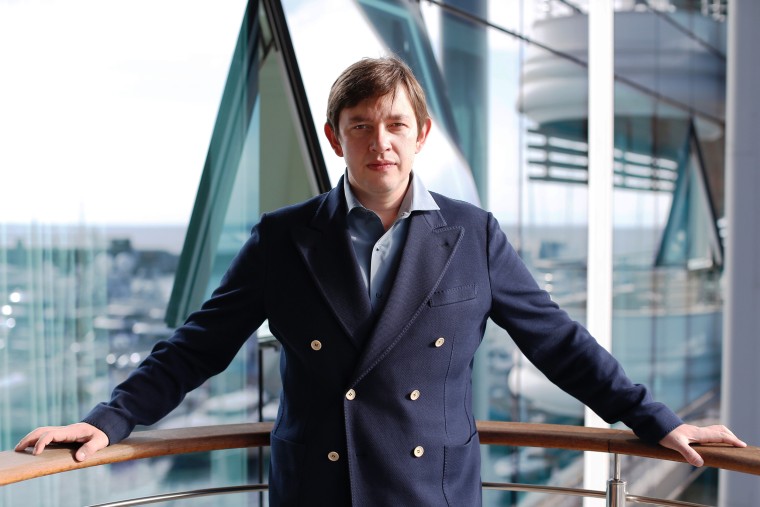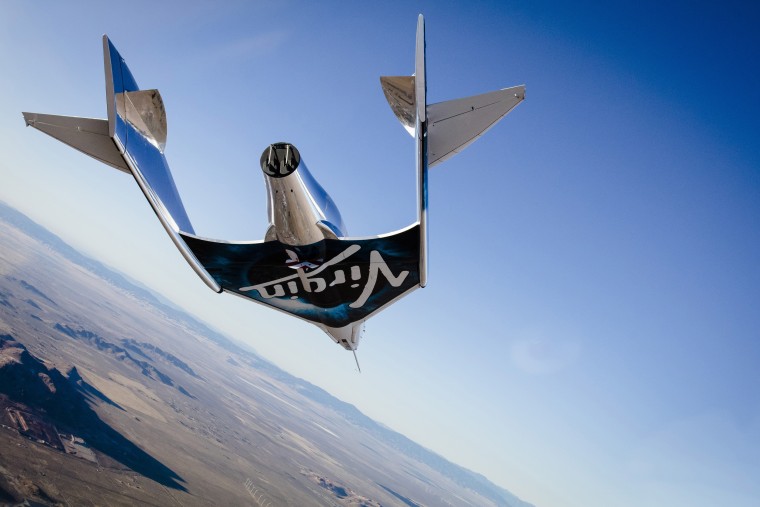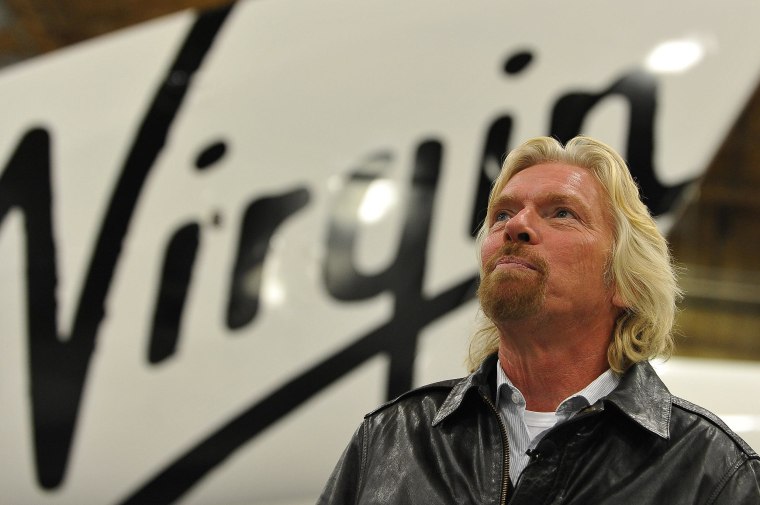Imagine booking the airfare for your dream vacation and then, three years later, still having no idea when you're leaving.
Vasily Klyukin, a Russian entrepreneur, designer, and author, plunked down $1.5 million at a 2013 amfAR charity gala for the opportunity to travel to space aboard a Virgin Galactic spaceship — along with Leonardo DiCaprio. They're both still waiting for that chance.

While Klyukin says the extended timeline dims the excitement somewhat, he's perfectly content waiting his turn.
"It's a dangerous trip, so it is better to wait more," Klyukin told NBC News. "I want to be sure I will come back to my four kids."
With the era of private space travel likely upon us in the next decade, there are inherent risks for those who take the trip. Even SpaceX CEO Elon Musk, who outlined his plan in September for colonizing Mars, conceded that anyone who makes the journey needs to be ready to accept death, something he personally is not ready to do.
"I'd like to see my kids grow up," Musk said.
Related: Elon Musk Makes His Case For Colonizing Mars
While adventurers have scaled Mount Everest, explored both poles, and reached the bottom of the ocean, space has remained the one destination that has largely been out of reach.
According to the latest count on Virgin Galactic's website, only 558 people have been to space, making it a highly sought-after but elite destination.
A Ticket to Ride
A trip into space with Virgin Galactic costs $250,000 and must be paid up front, according to the company's website. (Klyunik paid extra since his trip benefited charity.)
About 700 people have signed up for the ultimate joyride since 2004, when billionaire Virgin founder Richard Branson predicted his Virgin Galactic spaceship would ferry its first tourists into space by 2007.
While it was an ambitious timeline, it's been one fraught with setbacks, not just for Virgin Galactic, but the entire commercial space industry.
"Getting to space for satellites is tough. Getting to space with humans aboard is even tougher," Jim Cantrell, CEO at Vector Space Systems and a founding member of SpaceX, told NBC News.
Virgin Galactic suffered a major setback with its SpaceShipTwo when it broke apart over the Mojave Desert in 2014, killing the co-pilot and seriously injuring the pilot, who was able to parachute to safety.
Following a nine-month investigation, federal investigators said the accident was caused by "premature repositioning" of the spacecraft's tail wings.
The NTSB report attributed it to a co-pilot error. The two tail wings of the spaceship are designed to move when the space plane hits a certain speed — a process known as "feathering."
The co-pilot unlocked the feather at an early speed of Mach 0.8 instead of the intended speed of 1.4, triggering a "catastrophic structural failure," according to investigators.
Related: Virgin Galactic Unveils New SpaceShipTwo After Catastrophic Accident
The crash was devastating for the company and the commercial space industry. It was also something Klyukin said his children talked to him about. But there seems to be a special resolve among the earlier adopters, Cantrell said.
"We all have our levels of risk tolerance. People who have decided they want to go to space are going to go," Cantrell said.
Closing in on the Goal
This month, Virgin Galactic marked its first major milestone since the crash when its new spaceship, the VSS Unity, successfully completed its first glide test.

While it's one of many more tests to come, according to the company, it's a welcome sign after coming back from the horrific 2014 crash.
"As expected, for this first gliding test flight, VSS Unity was flying light and slow, achieving a maximum speed of approximately Mach 0.6 while gliding home from an altitude of 50,000 feet," the company said in an update.
"An initial look at the data as well as feedback from our two pilots indicate that today’s flight went extremely well, but we’ll take the time to properly and thoroughly analyze the vehicle’s performance before clearing the vehicle for our next test," the update said. "We’re looking forward to getting back into the skies as soon as the engineers say we are ready to do so."
When it comes to space tourism, Virgin Galactic has been one of the most visible companies aiming to democratize access to space.
Cantrell said he fully expects the company to realize Branson's vision of space joyrides; however, he isn't sure Virgin will be the first to do it in the United States.
Amazon CEO Jeff Bezos, who founded his rocket company, Blue Origin, in 2000, has quietly been making strides with suborbital flights and expects to test with humans as early as next year.
